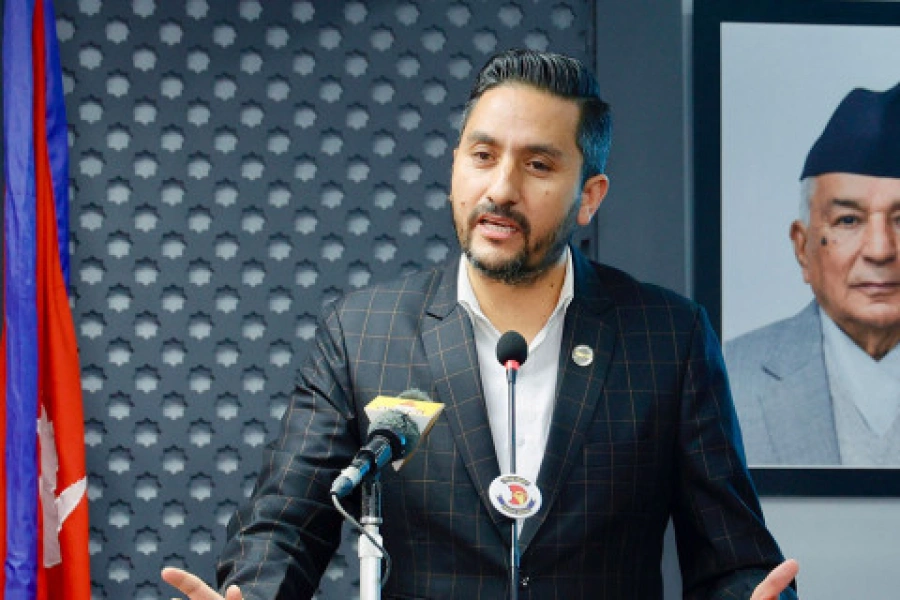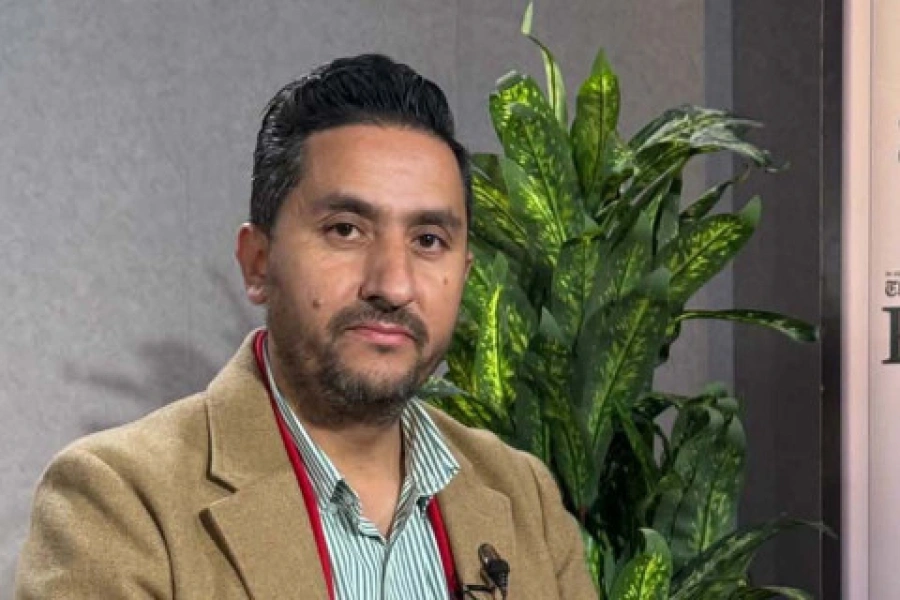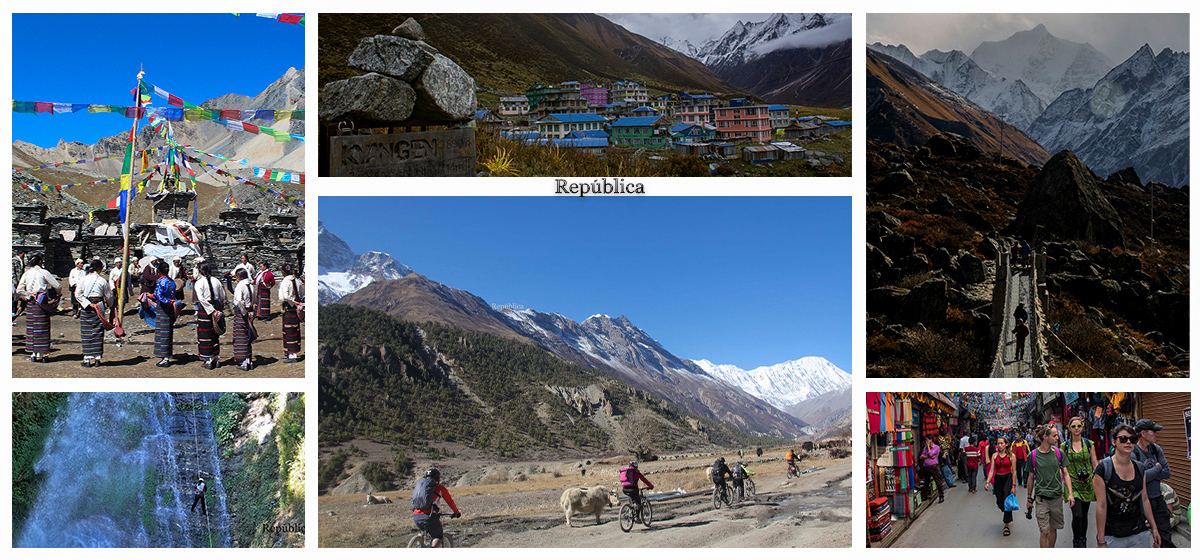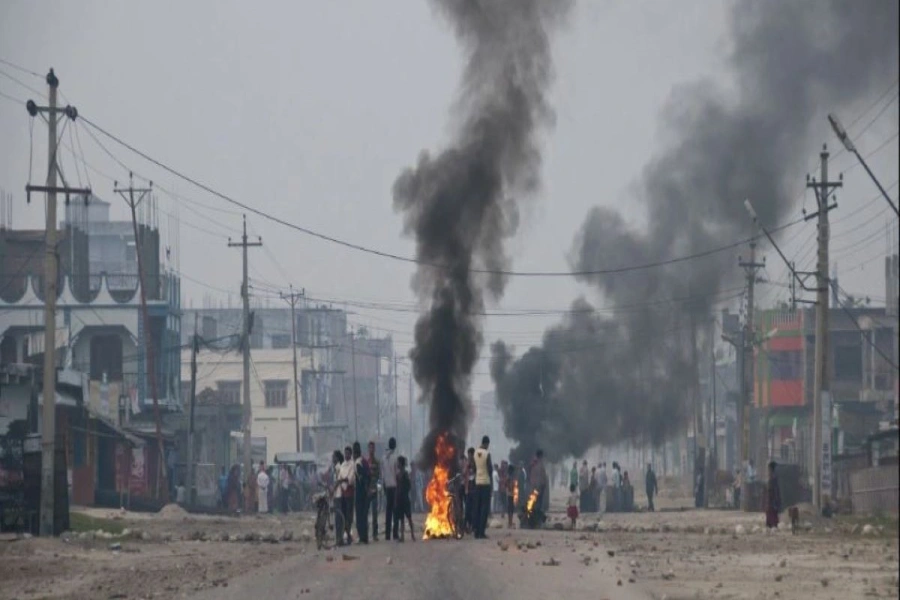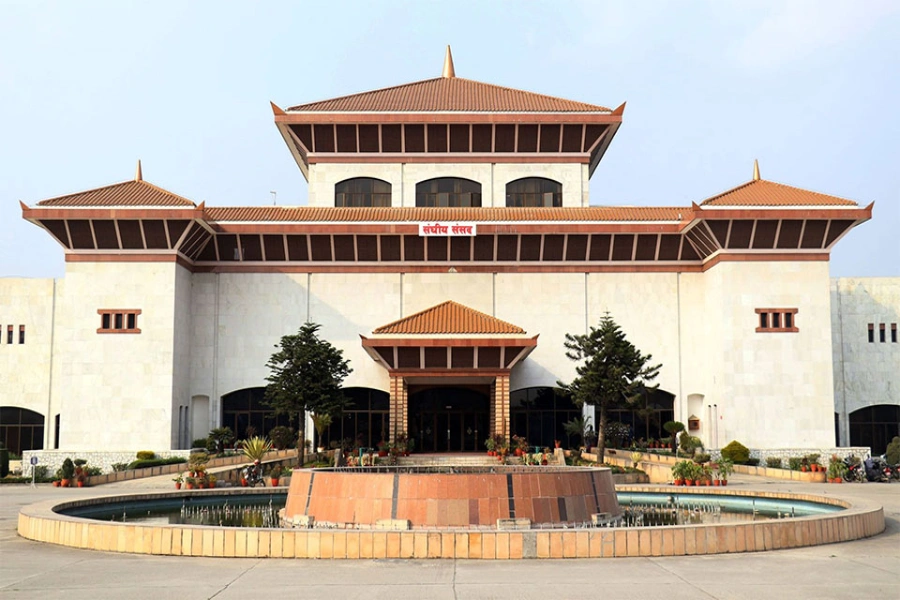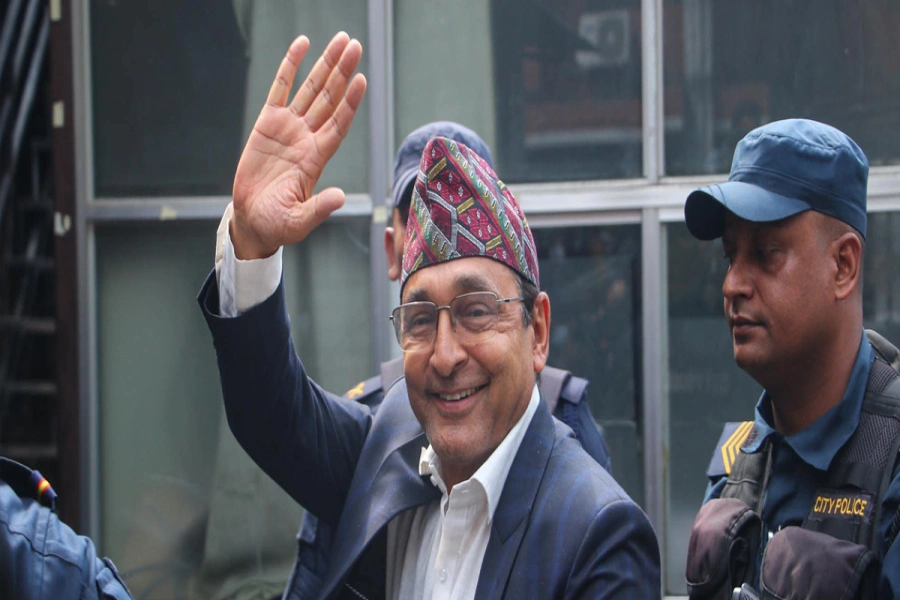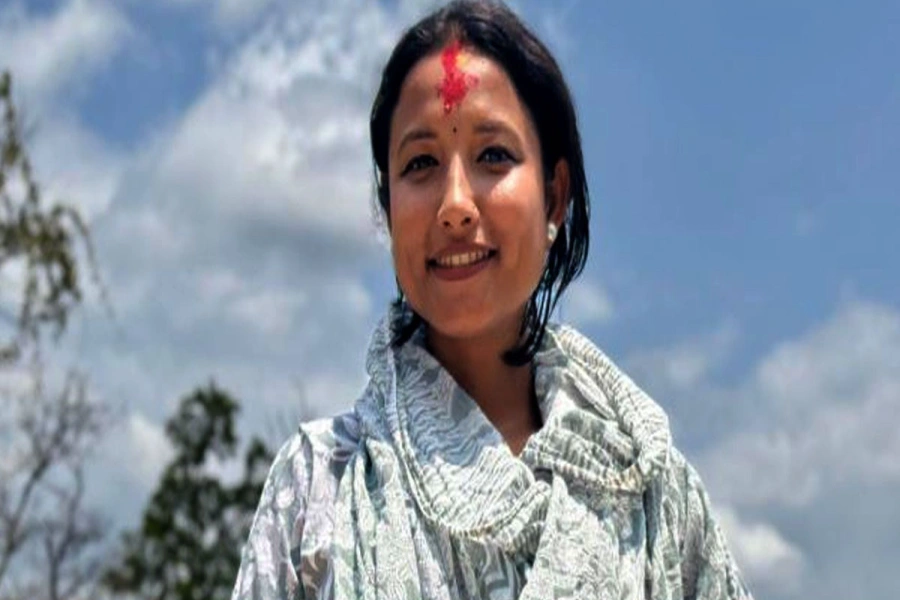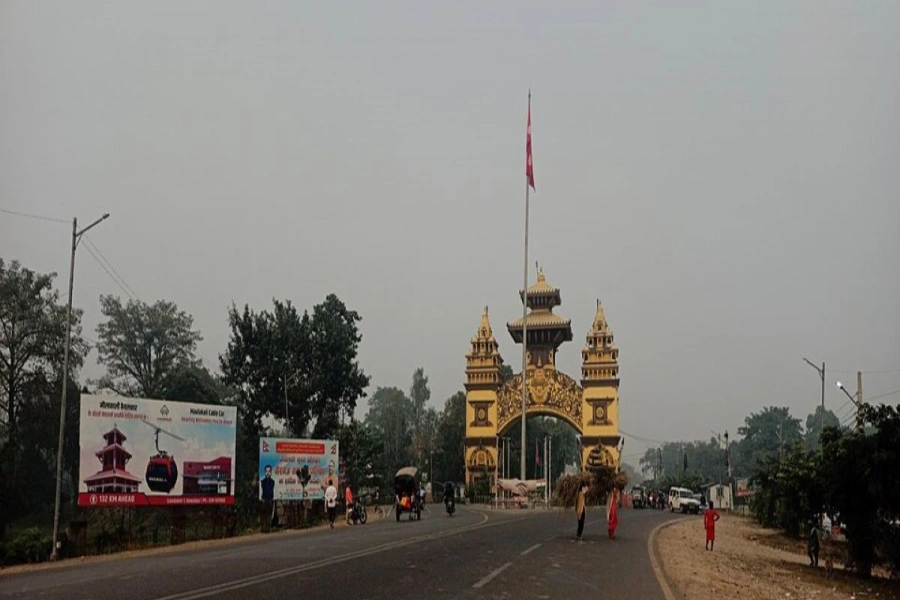JANAKPURDHAM, July 2: Built around 16 years ago for rehabilitating beggars, landless squatters and people with leprosy, the dilapidated Kodiyabasti shelter home in Janakpurdham is in dire need of conservation. The shelter with 20-room building constructed at Janakpurdham Sub Metropolitan City-7 by a social worker Jamiriya Devi Kurmini has been left abandoned following her demise some eight years ago.
Once inhabited by around 100 people of 22 families, the colony also served as a center where leprosy infected people would get care and treatment. Leprosy infected people reportedly being neglected in society would get a refuge and a respected life here.
Now, the shelter home is in a dilapidated condition. The compound wall’s paint is wearing off, and the iron gate is rusted. The entire 20-room building has become utterly dilapidated. Most of the people of Janakpur have known the contribution of the shelter home. But none of them seems to be interested in conserving it, said Bechan Mandal, who has been living in the colony since its establishment.
Once inhabited by around 22 families, the community now has only a handful of families. Five-member family of Mandal is living in one of the rooms while Gita Sada along with her four children is living in another. Krishna Sada is living alone in another room. The remaining rooms have been locked without people to live in.
People with leprosy had to live a 'neglected life' as back then the community would reportedly treat them differently. They had a belief that leprosy is caused as a result of people committing a sin in their 'previous life'. Leprosy-infected people around Janakpurdham had to face the same neglect and situation. Most of them did not own land to live. Seeing this condition, Kurmini made up her mind and constructed a settlement for people with leprosy.
The colony spanning six kathas and five dhurs of land has a 20-room building with kitchens, a temple and classrooms for learning and teaching activities for children. Teachers were also employed there in the past. Leprosy-infected people would get care, treatment, accommodation and food.
Leprosy on rise in Jhapa

Compelled to live on the streets again
Until Kurmini was alive, everything in the shelter home was good. Things have now become difficult here as the building is in disrepair, said Bijaya Sada. He has already left the community, and is living nearby and works as a scrap collector. "I felt a bit of pain while leaving the settlement. I lived and grew up here for around 15-16 years. My mother breathed her last here. I love the settlement but cannot live as things here are in disrepair," he said.
"Following the death of Jamiriya Devi Kurmini, there is no one to care for the shelter home. There is no electricity supply as the Nepal Electricity Authority has cut the supply for failure to clear electricity dues. Those who have the zeal and capacity to work are sustaining their livelihoods by working outside. But the single women, and children, who cannot work, are left high and dry."
Life here is very difficult as the structures have been dilapidated, said Bechan. He is worried that they may have to return again to live on the streets. "We were living on the streets. After we were displaced from the Ring Road, Aama [Jamiriya Devi Kurmini] gave us shelter here. We were a happy lot as around 22 families were living together. No one came forward to conserve the settlement after the death of Aama. Almost all have left the colony following COVID-19 and thereafter. Now, around three families are living here," he said. The people living in the colony used to fondly call Jamiriya Devi as Aama (mother).
"Our nine members of the settlement died here. My mother, a daughter and a son died here. The building is in disrepair. Ghosts haunt us. People die. No one wants to live here. We do not know how long we will live here. I am worried."
Many inhabitants left the colony, and it continues due to a lack of its conservation and security arrangement, said Janaki Ram Sah, former ward chair of Janakpurdham ward-7.
Except some assistance provided by the Ward Office when he was the ward chair, no help has come by so far for the management of the shelter, he said.
As a result, the inhabitants have returned to live as beggars for livelihoods, and do other risky jobs, he said. "Jamiriya Devi built the shelter with a sacred motive of providing a shelter to beggars and poor people. Many ill people got a new life here. Homeless people got home and children got education. But now, many have been left high and dry," he said, adding, "Following the demise of Jamiriya Devi, no one has come forward to become her successor in terms of continuing her dream of giving shelter to poor and helpless people." Instead, some are trying to take advantage for their personal benefits in the name of the settlement. The local government has not paid attention, either, he said, calling for the municipality to take initiatives to manage the shelter home.
‘No one cares for us’
Pragas Sada was found sitting cross-legged in front of the entrance gate of the settlement when the scribes of this report visited the place to cover the elections to the House of Representatives and Province Assembly some seven months ago. Mobility of the people and election fever increased in the settlement too. He was finding it hard to support himself and the family without income sources, as he was too weak to work, he shared. He was recovering from leprosy after taking medicines.
“We can eat only when my wife and daughters manage food by begging on the streets. We could get help in need when Jamiriya Devi was alive. Now, no one cares for us. Political leaders come here only for votes. They do not care for us after elections. Now, we are struggling to live,” he had said.
But this time, Pragas was not seen in the colony. When asked, Gita Devi Sada, spouse of Pragas, said he died some months after the polls. “He was not ill. But he suffered from paralysis as he was too weak. We could not save him,” she said.
Most people left the colony, and many others are preparing to leave, she said. But she does not have any other option. “I married him (Pragas) while begging on the streets. He died before locating his birth place,” she said with tear-filled eyes as she tried to conceal her emotions, adding, “Many have left the colony. Others are following suit. I have nowhere to go. I am worried I may have to end up living on the streets. We can live here if the building is managed.”
Two years ago during COVID-19, as many as 40 people inhabited the settlement. There are only 11 people now, said former ward chairman Shah. People are leaving the shelter to live again on the streets. This is a matter of concern for all of us, he said.
(RSS)


